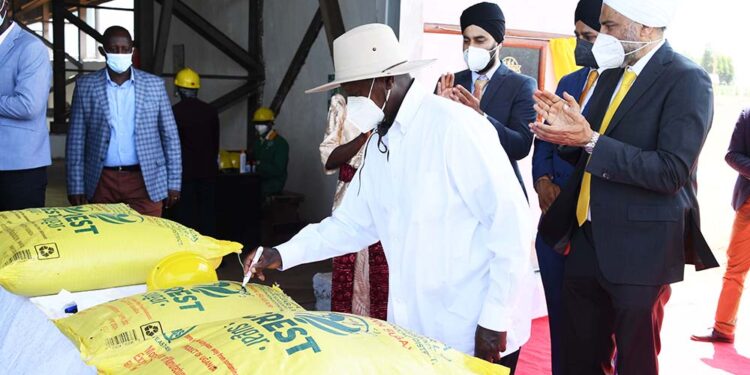In the first few years of the National Resistance Movement (NRM) administration, about 1986 to 1992, the policy debates and actions were dominated by restoring security, economic reconstruction and stabilization.
Shifted gear to dedicated actions aimed at actualization of NRM’s number 5 of the NRM 10 Point Program; “Building an independent, integrated and self-sustaining economy.
It was envisaged that an independent, integrated and self-sustaining economy would stop the leakage of Uganda’s wealth abroad and thus protect democracy, national security and national unity. And in 1992, President Yoweri Museveni articulated thus;
“There is no way that Africans can emancipate themselves from poverty and backwardness without carrying out an industrial revolution. As long as we continue exporting cheap, raw, primary commodities, our present situation will not change (Museveni, 1992).”
And;
“Our economic programme hinges on reviving and diversifying production, both in the agricultural and industrial sectors, with a view to creating a well-integrated, self-sustaining economy … this particularly involves restoring traditional export crops, and also expanding non-traditional crops such as beans or sim-sim. (Museveni, 1992)”
The opportunity for Uganda is ripe. Domestic and local investors looking to establish investments in Uganda, have opportunity to benefit from now expansive African market enabled by the African Continental Free Trade Area (Africa has 1.3 billion people and projected to have 2.5 billion people by 2050), access to quota free and duty free market in Europe under the Everything else but Arms (EBA) arrangement and over 6000 products listed under the African Growth and Opportunity Act (AGOA) arrangement.
The key legal and policy frameworks supporting acceleration of industrialization in Uganda.
Uganda’s quest for strong industrial growth and development is on an upward trajectory. Latest data sets suggest that Uganda has over 5,000 operational industries in various sectors. Jinja remains Uganda’s industrial hub with over 100 industries, more than double the number of industries it had in its heydays. The National Development Plan III, has three programmes directly linked with industrialization: Manufacturing; Innovation, Technology Transfer and Development; and Private Sector Development.
The foregoing is buttressed by key legal and policy frameworks;
National Industrial Policy of 2020 a framework for Uganda’s Industrialization, Employment and Wealth Creation targeting value addition and increasing proportion of manufactured goods in both exports and GDP and competitiveness.
National Trade Policy of 2007 – supporting productive sectors of the economy to trade, domestically and internationally.
National Strategy for Private Sector Development, 2017/18-2021/22 – aims at supporting the development of a competitive private sector.
National Export Development Strategy, 2017/18-2021/22 – targets value addition for export markets.
Buy Uganda, Build Uganda (BUBU) – targets domestic consumption of domestically produced commodities.
The NDP III (2020/21 – 2024/25) specifically aims at “enhancing household incomes and improving the quality of life of the population by holistically focusing on resource-led industrialization for export-led growth”. The aspiration is to increase the industrial sector’s contribution to GDP to 31 percent, up from the current 27.4 percent; the share of the labor force in industry to 26 percent, and the manufactured exports as a percentage of total exports to 50 percent by 2040.
Indeed, Uganda’s Vision 2040 states that a strong and competitive industrial base is important to create employment, advance technology and a resilient economy.
The theme for the national budgets for the past three financial years – 2017/18 to 2018/19 – has been: “Industrialization for Job Creation and Shared Prosperity” and the theme for the Budget for FY 2021/22 is “Industrialization for Inclusive Growth, Employment and Wealth Creation.”
The researcher is the ONC coordinator
Busoga Sub-Region
0756523763
Do you have a story in your community or an opinion to share with us: Email us at editorial@watchdoguganda.com













